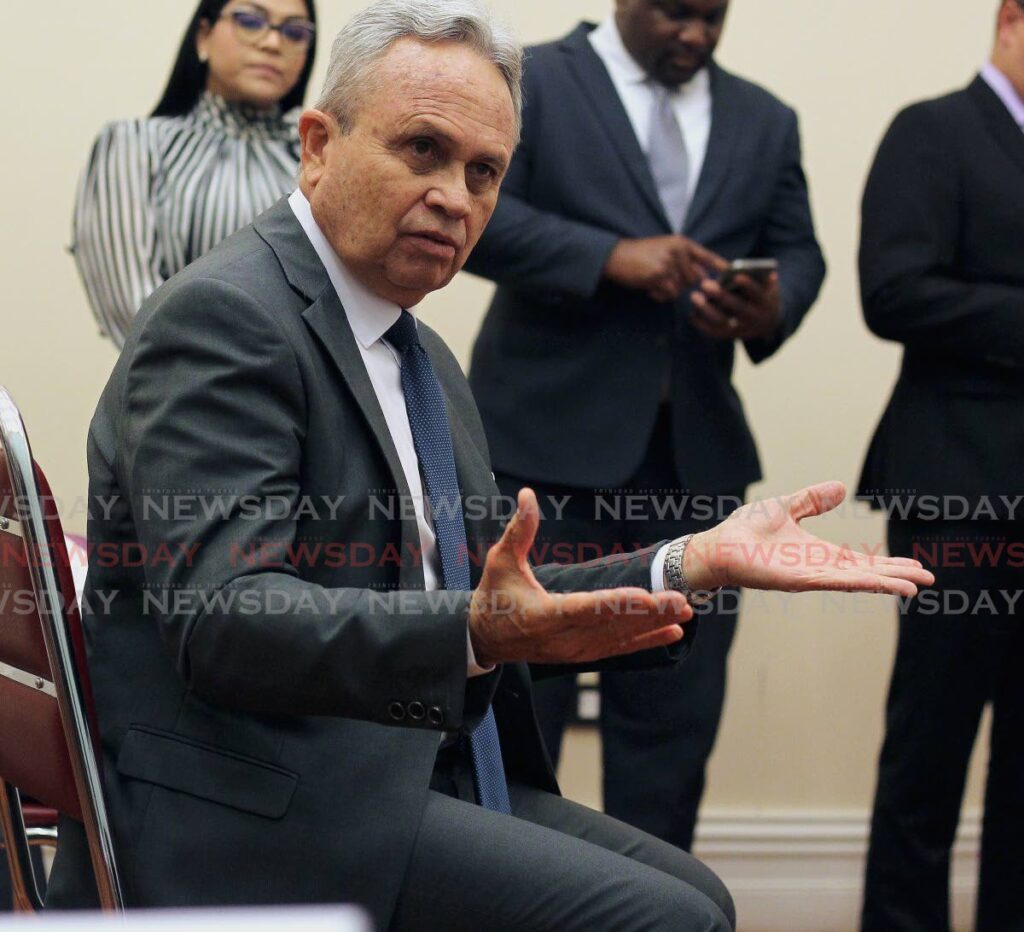Entrepreneurs tell Imbert: Blame banks for low % of business accounts

AFTER Finance Minister Colm Imbert revealed only 28 per cent of this country's businesses have business bank accounts, entrepreneurs say it's because opening such accounts is extremely challenging.
During the 2024 budget presentation in Parliament on Monday, Imbert said 72 per cent of Trinidad and Tobago businesses do not have a business bank account, 88 per cent do not accept digital payments, and 55 per cent of the population "do not now have the knowledge to use mobile or web online banking.
"This is an unacceptable situation in the modern era, and we must fix this.
"To keep pace with the rest of the world, we must make as many citizens and businesses as possible knowledgeable and comfortable with digital banking and digital payment solutions."
He said cash remains the dominant form of payment methods for bills and taxes, among other things. Because of this, the government will create a national financial inclusion roadmap "to alleviate the challenges and barriers currently faced by the financially excluded."
He said the data came from a recent survey done by the Financial Centre.
When this data was posted to social media, many asked whether Imbert was aware how difficult it is to open a business bank account.
Users described the process as exhausting, frustrating and stressful.
The owner of a copywriting business, who wished to remain anonymous, told Newsday the issue goes back to registering the business.
He said it was easier to register his business in the US. However, this caused further challenges, as local banks told him he could not create an account for an internationally-registered business. In addition, one local bank told him he would need $10,000 to open a chequing business account, as saving accounts cannot be used for businesses.
"Apparently, local banks don't like small businesses to be open," he concluded,"and have been fighting small businesses for years."
Another business owner said one challenge many face is projecting how much income the business may earn in a set number of years.
"If you're just starting off, you would not be sure what to put."
In addition, he said a local bank told him in order to get a business credit card, he would have to take a $50,000 loan and pay it off first.
Issues like these, he said, lead some people to opt for using their personal bank account. But with this comes the issue of commingling.
Commingling means combining business and personal funds, which is frowned upon by the banking sector.
In a 2020 notice, the Bankers Association (BATT) urged business owners to separate these funds, as "this allows for the accurate representation of a business' true state of affairs and prevents misrepresentation or concealment of same to their bankers, auditors, the tax authorities, etc."
It added that commingling "aids in tax evasion as it artificially reduces the total business income which has to be assessed for tax purposes for businesses who are required to pay taxes under the law."
Another business owner said monthly fees incurred on business bank accounts are another challenge.
"The slow creep of (those fees), fees related to transactions and the little care for small businesses turned me off."
Some people told Newsday the process is only tough if "you don't have your records in order."
In that case, they said, there will be a lot of "back and forth."
As a result, many people opt to pay other businesses to organise these things for them.
Founder and CEO of NSJ Financial Services Nekeisha Jeffrey said many clients come to her for help in setting up business bank accounts.
The main issue, she said, is consistency, as very often, different branches of the same bank ask for different documents.
"So one branch would tell you, 'These are the documents you must have,' and a different branch is telling you, 'No, that's not correct.'"
She recalled a business that had been inactive for two years still being required to have an accountant prepare financial statements for it.
"Why should they have to prepare blank financial statements? That is unnecessary."
When she heard the statistics from Imbert, she said it seemed blame was being cast on business owners.
"But they try. And there are issues like long wait times, ridiculous requirements...
"Sometimes an officer reviews a person's documents for three-four weeks and when that person finally gets an appointment, they still have queries.
"Banks need to work with business owners – the people who are new and trying. They are trying, and many of them have to resort to paying someone else to do it for them."
Newsday contacted the Bankers' Association for a comment, but the association said it was focusing on its budget response.

Comments
"Entrepreneurs tell Imbert: Blame banks for low % of business accounts"